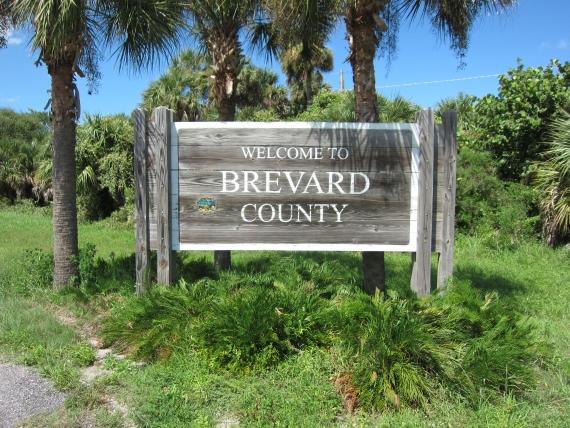8 Major Scams in Real Estate - What You Need To Look Out For
Posted: December 05, 2015 by LandCentury

Real estate is a major industry that is susceptible to scams just like any other industry in the world. When you go to buy land or a property, its important to know what current scams are being conducted.
Unfortunately, there are many that the average person would fall for unexpectedly.
You need to know what to look out for so that you dont get scammed in the process. Were going to take a look at the most common scams the real estate industry is currently experiencing.
One of the biggest scams (and longest running) deals with document forgery. There are still those that will forge documents to make it look like they own a piece of property when they dont. And, these people often ask for cash from the buyer who later finds out that he has been scammed when hes kicked off the land by the property owner.
Depending on your local jurisdiction, there may be rules in place that do not allow illegal flipping of a home to occur. A good example of this would be:
- Buying a home for $120,000.
- Selling the same home for $240,000.
The problem is that homes cant be purchased and resold quickly for prices well above the appraised value of the home without justification. This ensures that a wealthy investor cant buy all the homes in the area and resell them for unrealistic prices, effectively monopolizing the real estate market.
There are times when the buyer knows they really cant afford a mortgage, but theyll do anything to land the property. Lenders are supposed to safeguard these ill-advised investments for both the borrower's and lenders sake.
Real estate professionals that offer to help unqualified individuals get these loans is running a scam.
Usually, the agent will try to get a person into an FHA-insured mortgage and may even falsify documents to get you in the home. Its not in your best interests to own a home or property that you simply cant afford.
There are primary and junior lenders that end up involved in short sale fraud. Primary lenders put a cap on junior lenders. But, the sale of the home cannot go through unless all junior liens are satisfied.
Junior lenders are not happy about having their payments capped, which can result in fraud.
Many junior lenders will ask for money thats outside of escrow and payments that are never disclosed to the primary lender. Disclosure is the easiest way to stay safe against this type of fraud. All payments made to a junior lender must be disclosed as part of the short sale transaction.
Otherwise, youre part of the fraud that occurred if youre the buyer paying payments that weren't disclosed.
Statistics show that 9 out of 10 people will look online first for real estate before going to see a home in person. The problem is that many sites, such as Craigslist, will have homes for sale, and when you arrive, youre not at the same home that you saw in the listing.
Usually, youll be told the property is no longer available, and thats why youre at the current property.
When you enter the home, youll find out that its more expensive, may be smaller, or needs a lot of work. The short way to remedy this problem is to never waste your time with a property that was misrepresented from the start.
Wire fraud is a common occurrence and should never occur in todays real estate industry. What happens is that the real estate agent or seller will ask you to wire them money to hold the property on your behalf.
The problem is that many scammers will use this tactic when they dont own the home.
You may find that the land or home is owned by another individual, and the scammer gained access to the property. The moral of the story is to never wire money to a landlord or seller unless it has been legally verified and documented.
When dealing with property, many scammers will pose as owners and try to ask for a cash sale. Imagine an unused, empty lot of land that is in Florida. If the owners never visit the property, what is stopping a scammer from posting the listing online and trying to sell the property to you?
Youll never get the deed to the property, but you will be asked to provide payment.
A false deed may even be forged and handed over to you. The issue is that land may be an investment someone is holding, and the owner may not visit the property for years. If you fall into this scam, you may even think you own the land and may start utilizing it before finding out youve been conned.
The best way to fight back against this fraud is to do your due diligence.
Find out who owns the land by going to your local county clerks office and verify that the seller of the land actually owns the property you want to buy.
If the seller is rushing you to buy the property right this moment in cash, chances are that something is amiss.
Youve been invited to a seminar where you may even be promised a free gift to attend. The seminar intends to teach you about the world of real estate investing, and the initial offer sounds so good that you wouldnt dare pass it up.
There are two things that can happen here:
- Youll need to pay more for insider secrets and another seminar that will show you how to profit off of land.
- Youll be pushed into a hot investment opportunity to buy land, but you need to take advantage of it now before someone else does.
Unfortunately, these seminars are fly-by-night operations that will steal your money without you learning any proven investment techniques or owning property that you paid for legally.
Unfortunately, there are many that the average person would fall for unexpectedly.
You need to know what to look out for so that you dont get scammed in the process. Were going to take a look at the most common scams the real estate industry is currently experiencing.
Document Forgery
One of the biggest scams (and longest running) deals with document forgery. There are still those that will forge documents to make it look like they own a piece of property when they dont. And, these people often ask for cash from the buyer who later finds out that he has been scammed when hes kicked off the land by the property owner.
Illegal Flipping
Depending on your local jurisdiction, there may be rules in place that do not allow illegal flipping of a home to occur. A good example of this would be:
- Buying a home for $120,000.
- Selling the same home for $240,000.
The problem is that homes cant be purchased and resold quickly for prices well above the appraised value of the home without justification. This ensures that a wealthy investor cant buy all the homes in the area and resell them for unrealistic prices, effectively monopolizing the real estate market.
Fraudulent Loan Origination
There are times when the buyer knows they really cant afford a mortgage, but theyll do anything to land the property. Lenders are supposed to safeguard these ill-advised investments for both the borrower's and lenders sake.
Real estate professionals that offer to help unqualified individuals get these loans is running a scam.
Usually, the agent will try to get a person into an FHA-insured mortgage and may even falsify documents to get you in the home. Its not in your best interests to own a home or property that you simply cant afford.
Short Sale Fraud
There are primary and junior lenders that end up involved in short sale fraud. Primary lenders put a cap on junior lenders. But, the sale of the home cannot go through unless all junior liens are satisfied.
Junior lenders are not happy about having their payments capped, which can result in fraud.
Many junior lenders will ask for money thats outside of escrow and payments that are never disclosed to the primary lender. Disclosure is the easiest way to stay safe against this type of fraud. All payments made to a junior lender must be disclosed as part of the short sale transaction.
Otherwise, youre part of the fraud that occurred if youre the buyer paying payments that weren't disclosed.
Misrepresented Property Listings
Statistics show that 9 out of 10 people will look online first for real estate before going to see a home in person. The problem is that many sites, such as Craigslist, will have homes for sale, and when you arrive, youre not at the same home that you saw in the listing.
Usually, youll be told the property is no longer available, and thats why youre at the current property.
When you enter the home, youll find out that its more expensive, may be smaller, or needs a lot of work. The short way to remedy this problem is to never waste your time with a property that was misrepresented from the start.
Wire Fraud
Wire fraud is a common occurrence and should never occur in todays real estate industry. What happens is that the real estate agent or seller will ask you to wire them money to hold the property on your behalf.
The problem is that many scammers will use this tactic when they dont own the home.
You may find that the land or home is owned by another individual, and the scammer gained access to the property. The moral of the story is to never wire money to a landlord or seller unless it has been legally verified and documented.
Scammers Posing as Owners
When dealing with property, many scammers will pose as owners and try to ask for a cash sale. Imagine an unused, empty lot of land that is in Florida. If the owners never visit the property, what is stopping a scammer from posting the listing online and trying to sell the property to you?
Youll never get the deed to the property, but you will be asked to provide payment.
A false deed may even be forged and handed over to you. The issue is that land may be an investment someone is holding, and the owner may not visit the property for years. If you fall into this scam, you may even think you own the land and may start utilizing it before finding out youve been conned.
The best way to fight back against this fraud is to do your due diligence.
Find out who owns the land by going to your local county clerks office and verify that the seller of the land actually owns the property you want to buy.
If the seller is rushing you to buy the property right this moment in cash, chances are that something is amiss.
Phony Seminars
Youve been invited to a seminar where you may even be promised a free gift to attend. The seminar intends to teach you about the world of real estate investing, and the initial offer sounds so good that you wouldnt dare pass it up.
There are two things that can happen here:
- Youll need to pay more for insider secrets and another seminar that will show you how to profit off of land.
- Youll be pushed into a hot investment opportunity to buy land, but you need to take advantage of it now before someone else does.
Unfortunately, these seminars are fly-by-night operations that will steal your money without you learning any proven investment techniques or owning property that you paid for legally.




